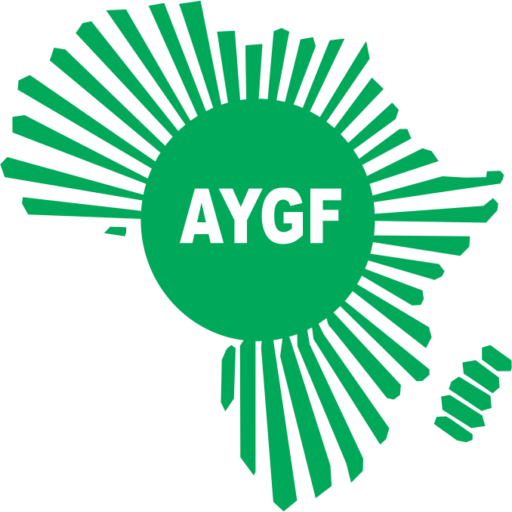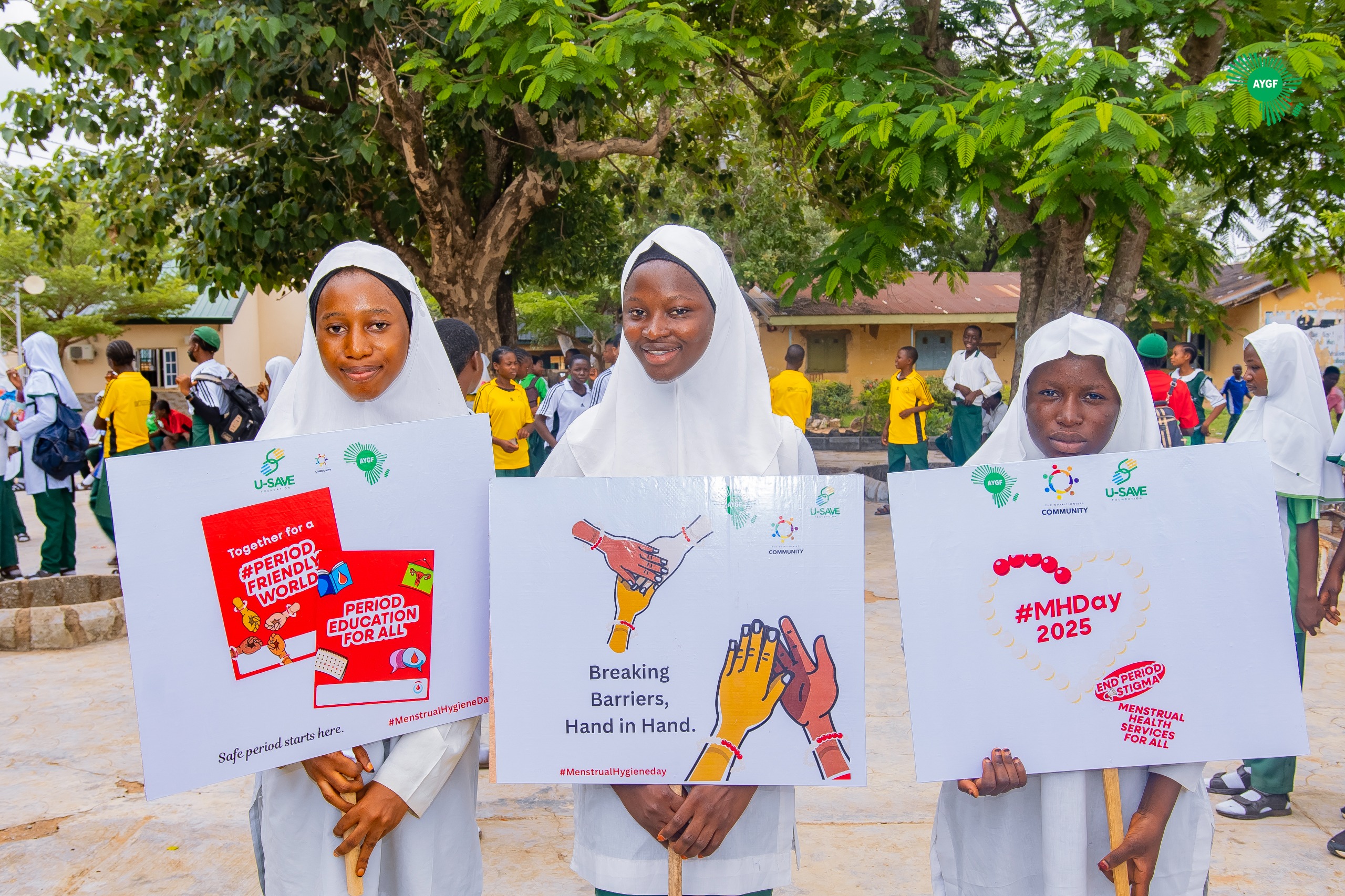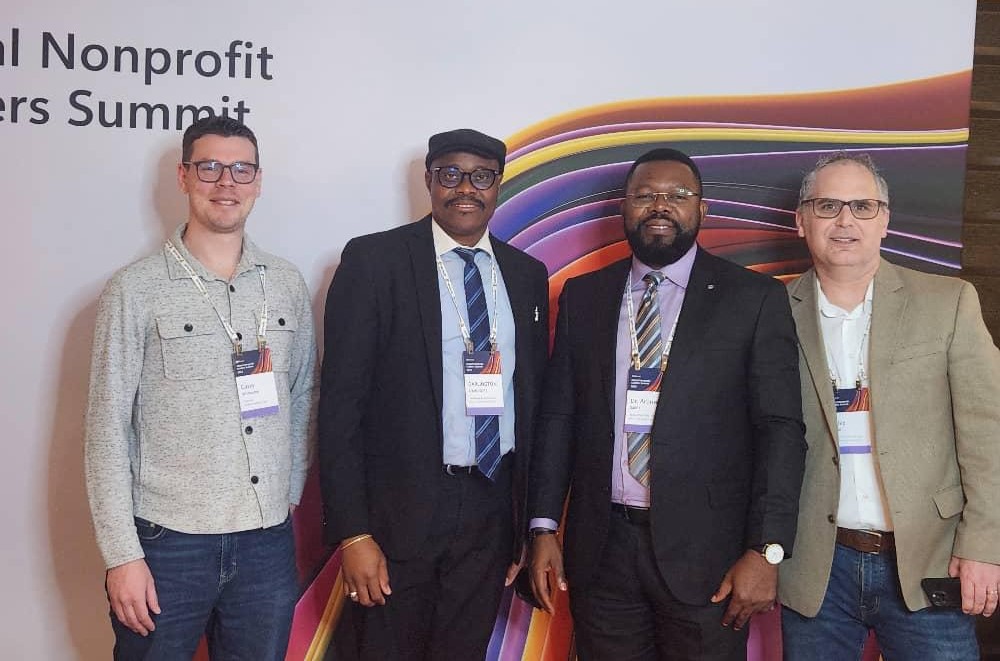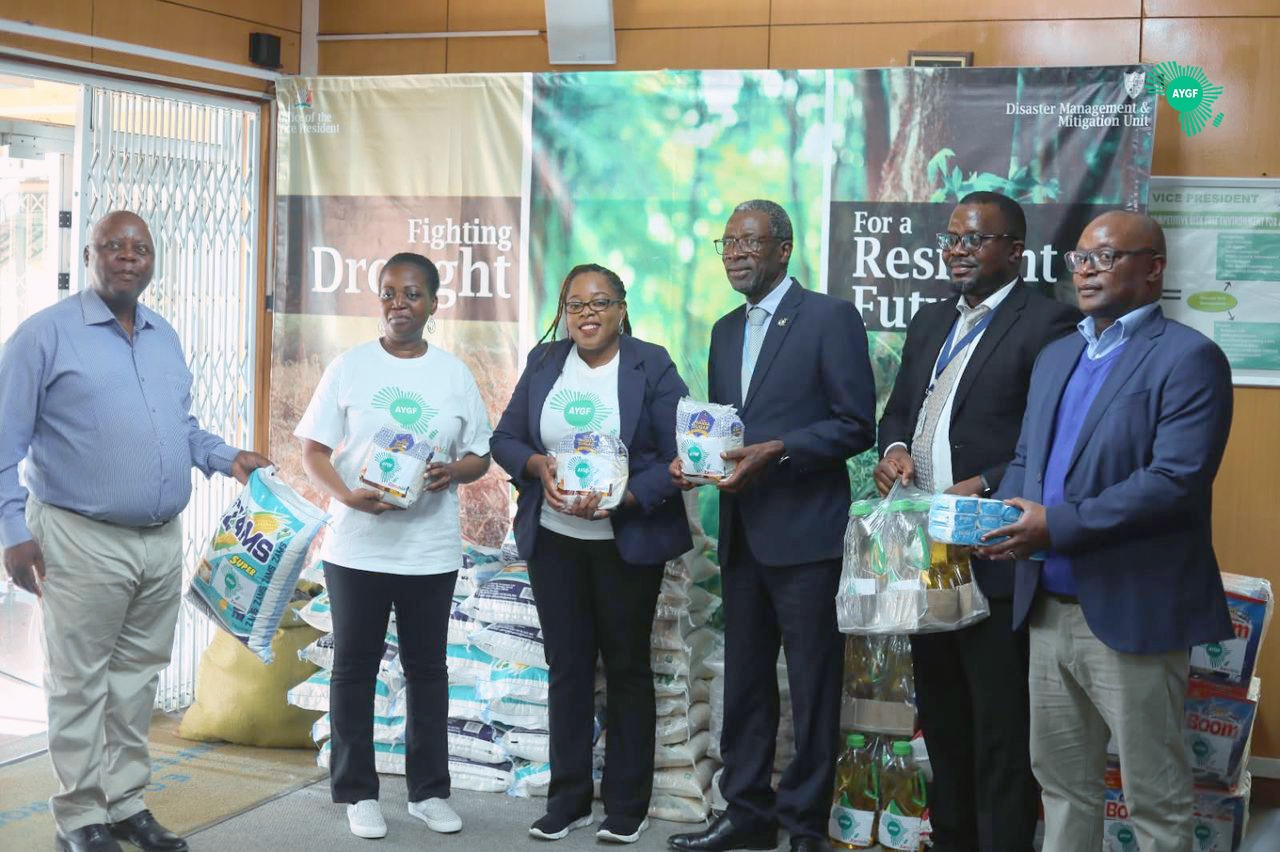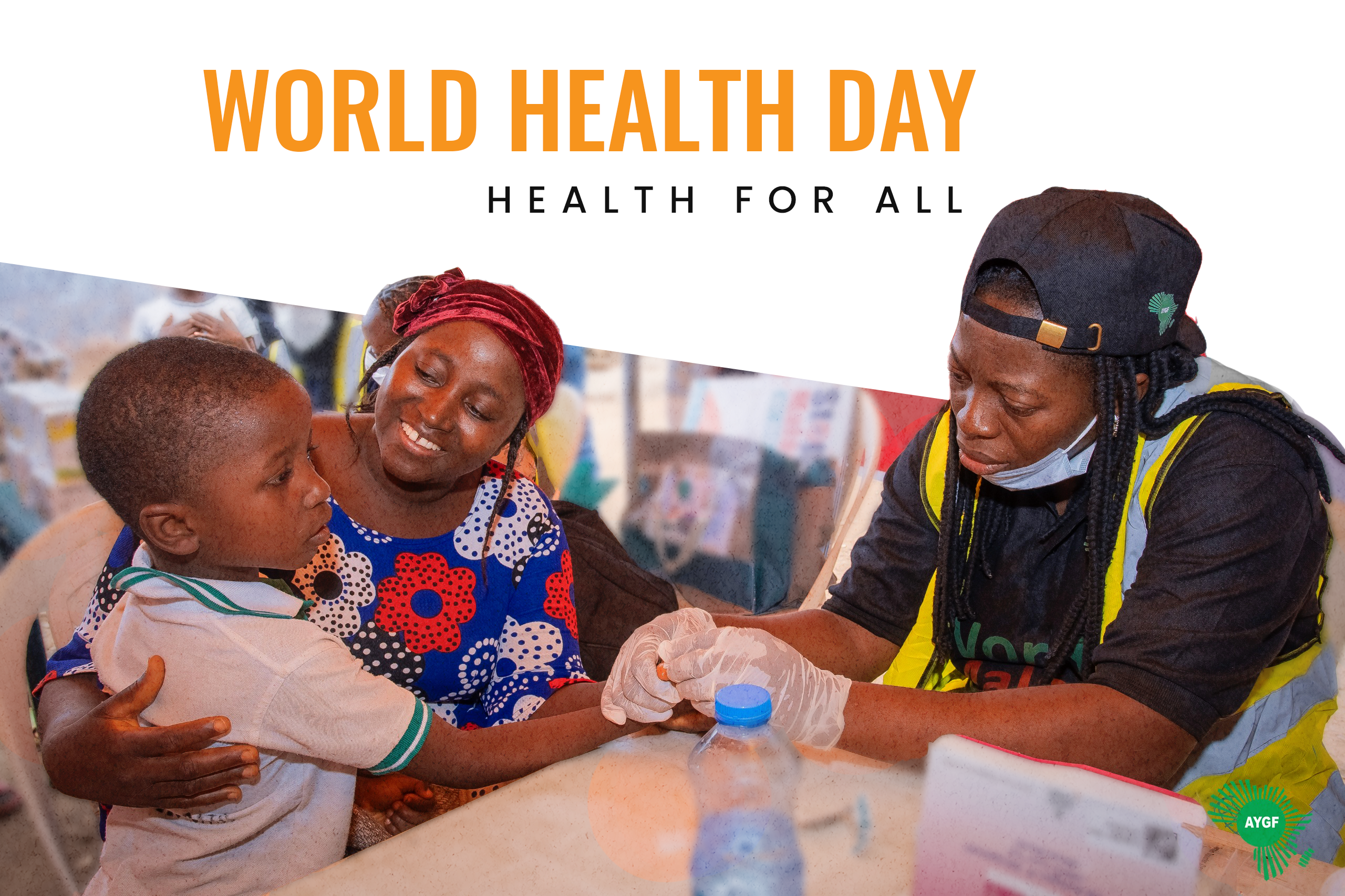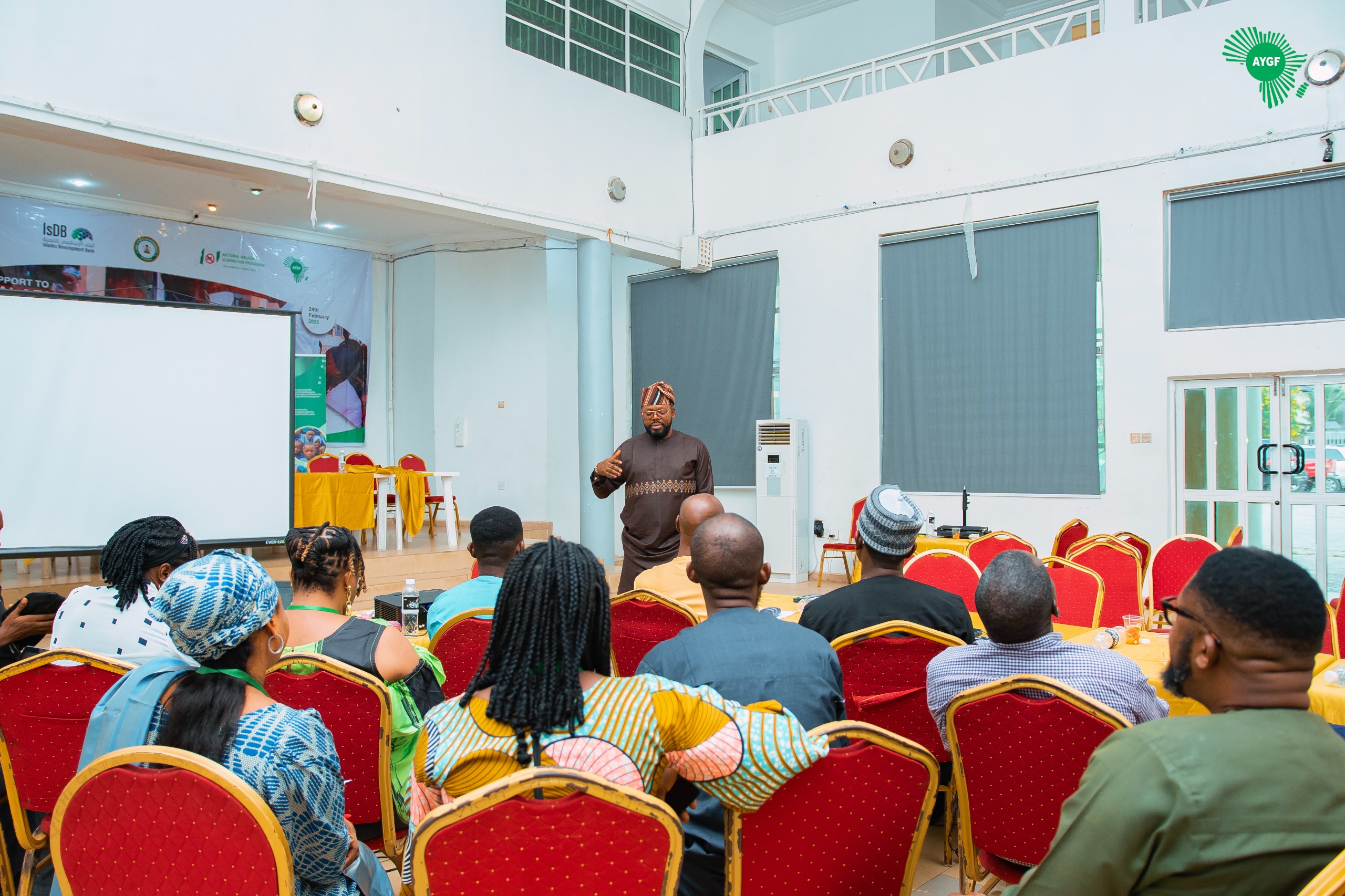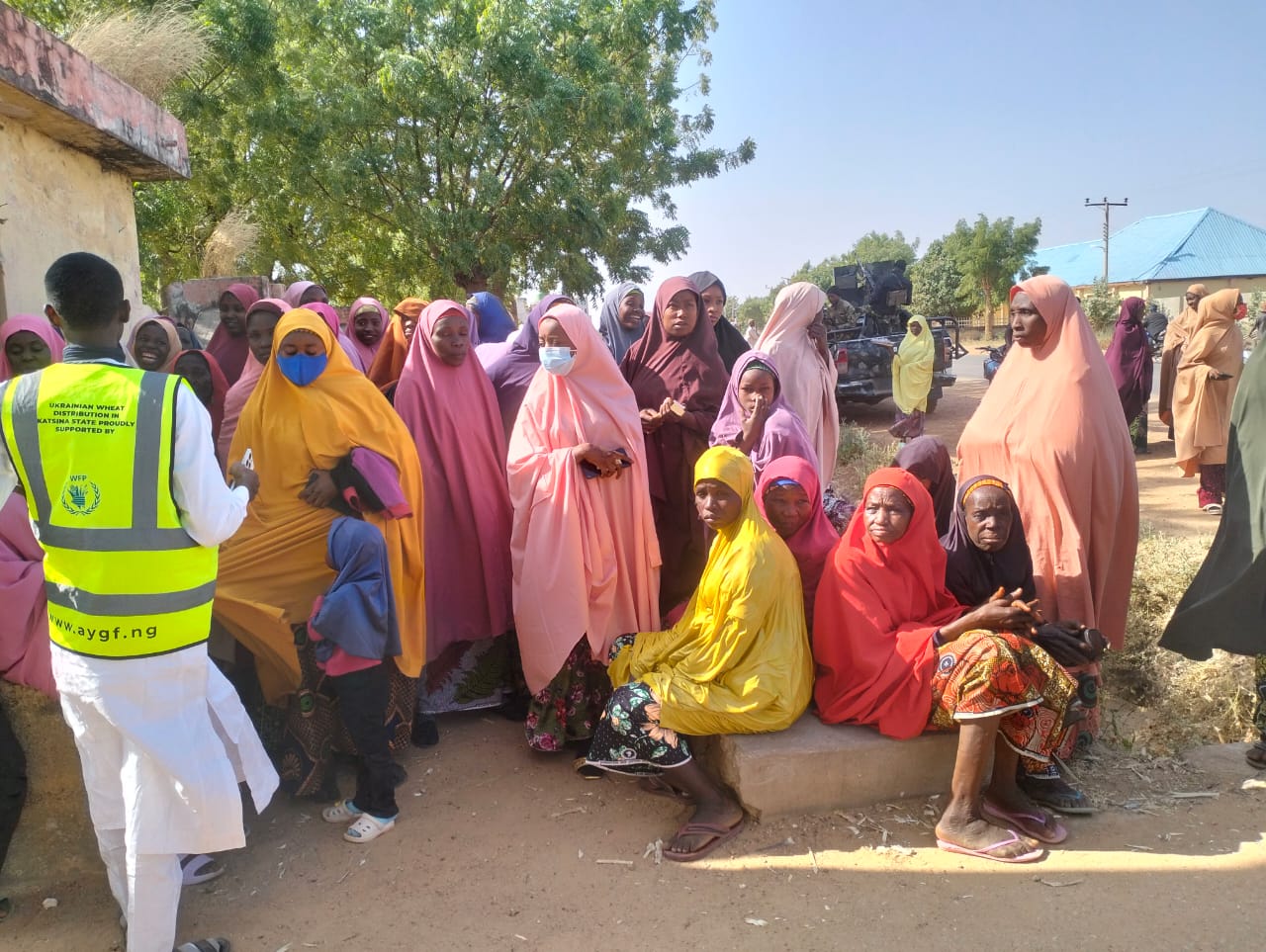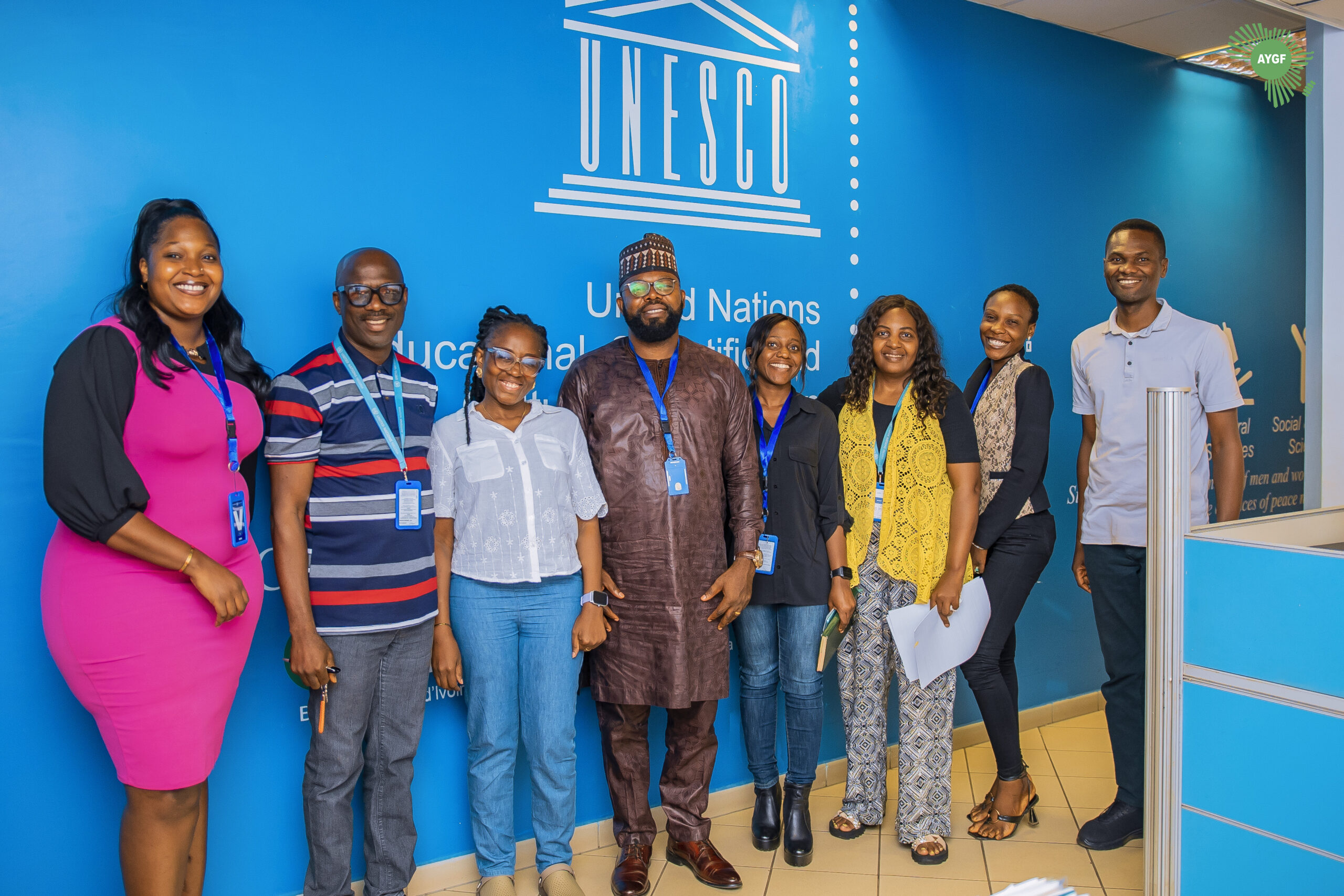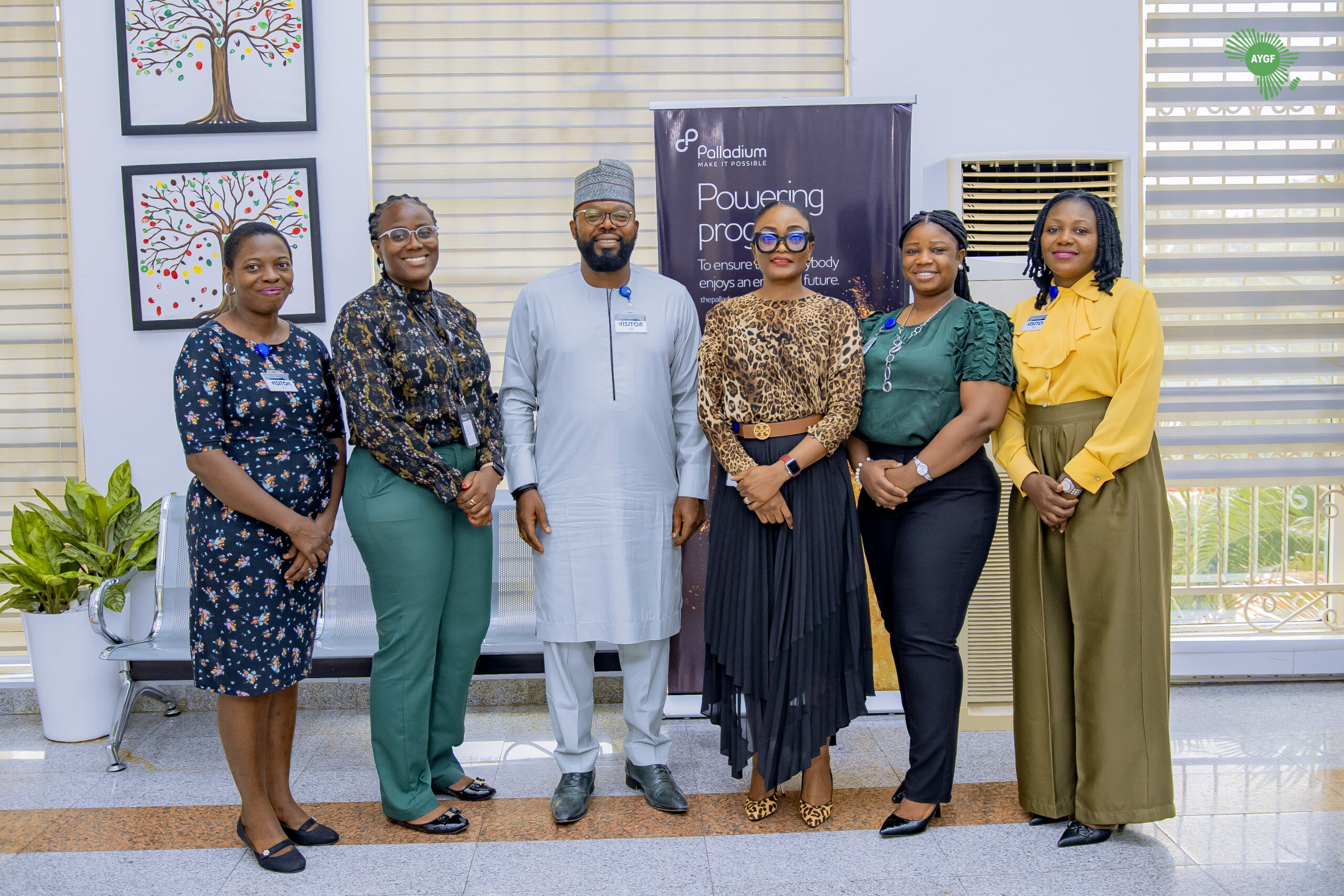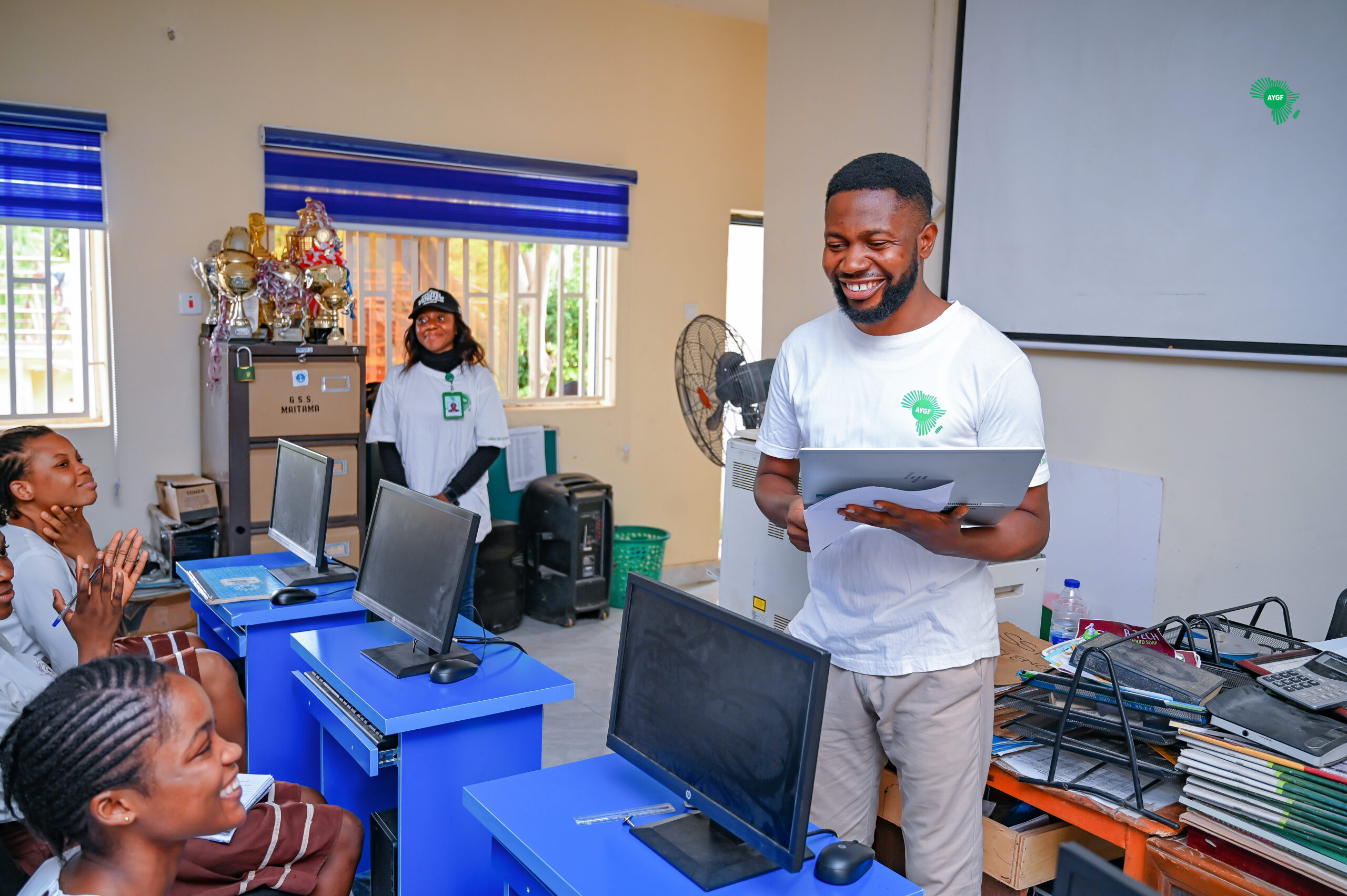AYGF is deeply saddened by the brutal attacks on the communities of Yelewata and Daudu in Benue State, Nigeria. Reports confirm that over 200 people, many of them already displaced by previous violence—lost their lives in this senseless tragedy. The attacks, which occurred in the early hours of June 14, targeted internally displaced persons (IDPs) who had sought refuge and safety in these communities. Eyewitnesses recount horrifying scenes: families burned alive in market stalls, homes razed, and children among the victims. AYGF condemns these acts in the strongest possible terms. The targeting of already vulnerable populations is not only a gross violation of human rights but also a stark reminder of the urgent humanitarian crisis unfolding in parts of Nigeria. We call on the Federal Government, national security agencies, and international partners to: As an organization we are committed an equitable society where the voice of the vulnerable is heard and prioritized to have a dignified life. AYGF stands in solidarity with the people of Benue State. Our hearts go out to the families of the victims, and we reaffirm our commitment to advocating for justice, safety, and long-term solutions to displacement and conflict.
Breaking the Silence: Prioritizing Menstrual Health for All
To mark World Menstrual Hygiene Day, AYGF partnered with Usave Foundation and The Nutritionist Community to visit two schools in Bwari Local Government Area Council, Federal Capital Territory, Abuja. Our team engaged with students to raise awareness about menstrual hygiene, empowering young girls with vital knowledge while fostering understanding and support among boys. This meaningful outreach is part of our continued commitment to breaking the silence, challenging stigma, and creating inclusive environments where menstrual health is openly discussed and respected. Did you know that 1 in 10 girls in Sub-Saharan Africa miss school during their period due to lack of access to menstrual products? Or that 500 million people globally lack access to adequate menstrual hygiene facilities? Today, on World Menstrual Hygiene Day, AYGF is raising its voice to spotlight an often-ignored crisis—menstrual inequality. Menstruation is natural, yet millions are forced to manage it in silence, shame, or unsanitary conditions. It’s time to break the stigma and build a world where menstruation is not a barrier to health, education, or dignity. Celebrated every May 28, World Menstrual Hygiene Day was initiated to raise awareness and combat the taboos and stigma surrounding menstruation. The choice of 28/5 is symbolic, most menstrual cycles average 28 days, and the average duration of menstruation is 5 days. This year’s global theme, “Together for a #PeriodFriendlyWorld,” encourages collective responsibility—governments, NGOs, schools, families, and individuals must work hand-in-hand to ensure menstrual equity for everyone, everywhere. AYGF’s Commitment to Menstrual Health At AYGF, we believe that menstrual health is a critical component of human dignity, public health, and gender equality. Our commitment goes beyond awareness; we advocate for systemic change that ensures every individual who menstruates can do so with safety, confidence, and without shame. We recognize that addressing menstrual health means confronting deep-rooted stigma, inequalities, and gaps in access to essential resources. In many parts of the world, menstruation is treated as something shameful. Girls are told not to talk about it. Some are even excluded from school, religious activities, or household duties when menstruating. This stigma perpetuates ignorance and discrimination. AYGF believes education is the most powerful tool to dismantle these harmful norms. By engaging both girls and boys, we create inclusive spaces where menstruation is seen for what it is—a normal, healthy part of life. Change begins with awareness and action. Here’s how you can support the movement:
AYGF Takes Part in the Global nonprofit Summit, Championing AI for Greater Impact
At the intersection of tech and compassion, the Global Nonprofit Summit 2025 made one thing clear: AI is no longer the future, it’s the now. The Global Nonprofit Leaders Summit 2025, held from March 25–27 in Seattle, United States, and was a pivotal event for nonprofit leaders exploring the integration of artificial intelligence (AI) into their missions. Hosted by Microsoft, the summit brought together over 1,000 nonprofit executives, technologists, and innovators to discuss how AI can enhance organizational impact, efficiency, and sustainability. At AYGF, we recognize that the future of nonprofit work lies at the intersection of compassion and technology. The summit showcased how AI is already transforming organizations from automating administrative tasks to uncovering insights through data that help us better serve vulnerable communities. Dr. Arome Salifu’s presence at the summit wasn’t just about attending, it was about amplifying Africa’s voice in the global conversation on innovation. His participation emphasized the urgent need to ensure AI benefits are inclusive, especially in regions like Africa where the social needs are great, and the potential for impact is even greater. As we move forward, AYGF will continue to explore, pilot, and scale AI-driven solutions that align with our values and mission. We believe technology is a powerful ally in creating a world where every youth, migrant, and vulnerable community member has access to opportunity, dignity, and hope. The future of nonprofit work is smarter, stronger, and more impactful, and AYGF is ready. As we continue to innovate and integrate AI into our programs, we invite you to join us in this exciting journey of transformation. The possibilities are endless, and together, we can create a future where technology and compassion work hand in hand to drive positive change.
When the Waters Rose: AYGF Brings Relief to Flood-Hit Families in Zambia
Homes were washed away, schools submerged, and lives uprooted as floods ravaged Lusaka Province earlier this year. Entire communities were left stranded, with families struggling to access food, clean water, and shelter in the aftermath. In the midst of this crisis, the African Youth Growth Foundation (AYGF) stepped forward, not just with words of comfort, but with tangible support. In a coordinated humanitarian response, AYGF donated essential food and hygiene items to families affected by the floods, reaffirming its commitment to serving vulnerable populations across Africa. The donation, which included staples like rice, mealie meal, cooking oil, and soap, was officially handed over to Zambia’s Disaster Management and Mitigation Unit (DMMU), under the Office of the Vice President. Leading the effort was AYGF Country Representative, Ms. Malama Zulu, who emphasized the organization’s focus on community resilience and rapid emergency intervention. “At AYGF, we believe that no one should face disaster alone,” Ms. Zulu said. “We’re honored to work alongside the DMMU in ensuring that families receive the urgent support they need in times of crisis.” Mr. Norman Chipakupaku, National Coordinator of the DMMU, expressed deep appreciation for AYGF’s intervention. “This donation will go a long way in addressing the immediate needs of those affected. We value this partnership and the impact it continues to make.” According to Zambia’s Ministry of Green Economy and Environment, extreme weather events, including floods, are becoming more frequent due to climate change, making timely interventions like this even more critical. But AYGF’s action is not just about immediate relief. It’s a part of a broader vision: a future where communities are equipped, empowered, and supported before, during, and after disaster strikes. With a presence in Zambia, Nigeria, Canada, and the United States, AYGF continues to champion sustainable development, youth empowerment, and humanitarian response across the continent. As families in Lusaka begin to rebuild their lives, AYGF’s contribution serves as a reminder that in the face of crisis, compassion and action can make all the difference.
Health Today, Hope Tomorrow – World Health Day 2025
Every child deserves a healthy start in life. Yet, in many parts of the world, this remains a distant dream. Malnutrition, limited access to healthcare, and economic hardship prevent millions of children from reaching their full potential. As we mark World Health Day 2025, this year’s theme, “Healthy Beginnings, Hopeful Futures,” reminds us that investing in children’s health today is the foundation for stronger, more resilient communities tomorrow. In Nigeria, where 33% of children under five suffer from chronic malnutrition (stunting) and 60% of the population lacks access to essential health services, the urgency of this conversation cannot be overstated. Malnutrition is a silent crisis, robbing children of the ability to grow, learn, and thrive. In Northern Nigeria, where food insecurity and poverty are widespread, children often do not receive the nutrients they need for proper brain and body development. According to UNICEF, 2 million children in Nigeria suffer from severe acute malnutrition every year, yet only a fraction receive the treatment they need. Lack of proper nutrition in early childhood not only affects health but also influences future economic prospects. Malnourished children are more likely to perform poorly in school, struggle with productivity in adulthood, and experience long-term health issues. AYGF’s Commitment to Healthy Beginnings At Africa Youth Growth Foundation (AYGF), we recognize that health and nutrition are inseparable. A child who lacks proper nourishment is more vulnerable to infections, diseases, and developmental delays. That’s why we’ve made it our mission to bridge the gap in access to essential nutrition and healthcare. Through our partnership with the World Food Programme (WFP), we are delivering life-saving nutrition to 79,920 vulnerable individuals in Katsina State, Nigeria. Our General Food Assistance – Cash-Based Transfer (GFA-CBT) project provides targeted food assistance, ensuring that families, especially pregnant women and young children, receive the nutrients they need to thrive. By supporting households with cash-based assistance, we empower families to make dietary choices that suit their nutritional needs while also boosting local markets. In addition to emergency food assistance, AYGF is a key implementing partner in the Accelerating Nutrition Results in Nigeria (ANRIN) project, a World Bank-supported initiative aimed at tackling malnutrition through large-scale, community-driven interventions. So far, our work under ANRIN has: These interventions go beyond numbers, they translate to stronger immune systems, healthier pregnancies, and lower child mortality rates. Good nutrition is a long-term investment in healthier societies. When children receive balanced diets rich in proteins, vitamins, and essential minerals, they are less likely to suffer from preventable diseases like anemia, weakened immunity, and cognitive impairments. A well-nourished child is better equipped to learn in school, grow into a productive adult, and contribute meaningfully to their community. This is why AYGF’s approach to tackling malnutrition is holistic, combining food security, nutrition education, and sustainable diet strategies to break the cycle of poverty and ill health. As we observe World Health Day 2025, AYGF remains committed to Healthy Beginnings, Hopeful Futures. Through partnerships, community engagement, and evidence-based interventions, we are not only fighting malnutrition but also laying the groundwork for a healthier, more prosperous Nigeria. A child nourished today is a leader empowered tomorrow. The time to act is now.
AYGF Leads the Fight Against Malaria in Edo State
Malaria has been a major health issue in Nigeria for years, with the country accounting for about 25% of the world’s malaria cases. Even though it is a preventable and treatable disease, malaria still takes hundreds of thousands of lives every year. In Nigeria alone, over 200,000 people die from malaria-related complications annually. In Edo State, the malaria prevalence rate is about 30%, meaning nearly one in three people battle this disease. With numbers like these, it is clear that serious action is needed to curb its spread and impact. Recognizing this urgent need, Africa Youth Growth Foundation (AYGF), with support from the Edo State Government, National Malaria Elimination Program (NMEP) and the Islamic Development Bank, has launched the Support to Malaria Elimination Project. This project goes beyond just reducing malaria cases; it is a targeted effort to save lives, protect families, and secure a healthier future for Edo State. The official flag off on February 5, 2025, marks a significant achievement in the fight against malaria, bringing together government leaders, health experts, and international partners to implement sustainable solutions for malaria elimination. The Support to Malaria Elimination Project is designed to tackle malaria from multiple angles. Prevention is a key priority, as stopping mosquitoes from spreading the disease will significantly reduce infection rates. Through widespread distribution of insecticide-treated mosquito nets, communities will be better protected from mosquito bites. Treatment is another crucial aspect, ensuring that anyone infected with malaria has access to prompt and effective medical care. To achieve this, malaria testing and treatment will be provided free of charge at all government health facilities, removing financial barriers to life-saving care. Education is equally essential, as raising awareness about malaria prevention and early treatment can empower communities to take proactive measures against the disease. The project aims to make a measurable impact in Edo State. One of its primary goals is to increase the percentage of pregnant women receiving malaria prevention treatment from the current 21% to at least 80%. This will help reduce malaria-related complications during pregnancy and improve maternal and child health outcomes. Additionally, malaria treatment coverage is expected to rise from 71% to 100%, ensuring that no malaria-positive patient goes untreated. Another key target is increasing the use of insecticide-treated mosquito nets, which currently stands at a low 15.4%. Through the distribution of 1.3 million nets, this figure is projected to reach 80%, significantly reducing the risk of mosquito bites. While AYGF, in collaboration with NMEP and the Islamic Development Bank, is leading the charge against malaria, the success of this project also depends on community participation. Every individual has a role to play in malaria elimination, starting with simple actions such as sleeping under treated mosquito nets, maintaining a clean environment to prevent mosquito breeding, and seeking early treatment at health facilities. Raising awareness within households and communities will further strengthen the impact of the project, as knowledge and preventive habits are key to long-term malaria control. Malaria elimination is a realistic goal that can be achieved through collaboration, commitment, and sustained effort. As the Executive Director of AYGF, Dr. Arome Salifu, emphasized during the project flag off, a malaria-free Edo State is within reach if all stakeholders work together. With AYGF leading this vital project, backed by the expertise of NMEP and the financial support of the Islamic Development Bank, Edo State is set to witness a transformation in public health. Through collective action, communities can look forward to a future where malaria is no longer a threat, and families can thrive in a healthier environment. The fight against malaria is one that requires everyone’s involvement, and together, this disease can be defeated.
79,920 People to Receive Aid: AYGF & WFP’s GFA-CBT Project in Katsina
Hunger is more than just a lack of food; it is a crisis that affects lives, weakens communities, and hinders progress. According to the Food and Agriculture Organization (FAO), over 733 million people worldwide suffered from hunger in 2023, with Sub-Saharan Africa being one of the hardest-hit regions. Katsina State, in northwestern Nigeria, faces serious food insecurity due to economic challenges, inflation, and insecurity. About 50% of the state’s population struggles to get enough food, especially in rural areas. Bandit attacks, conflicts, and displacement have made it even harder for people to farm and feed their families. To tackle this crisis, the Africa Youth Growth Foundation (AYGF), in partnership with the United Nations World Food Programme (WFP), launched the General Food Assistance – Cash-Based Transfers (GFA-CBT) Project. This program helps families by giving them direct financial support instead of just handing out food, allowing them to buy what they need based on their dietary requirements. With 79,920 beneficiaries across five Local Government Areas (LGAs)—Batsari, Danmusa, Dutsinma, Safana, and Kurfi—the project provides both financial assistance and essential food items. Each individual gets ₦11,800 per month, plus an extra ₦400 for cooking fuel, while a family of five can receive ₦61,000 monthly. This support ensures that people have both money to buy food and direct access to key food supplies. Pregnant women, nursing mothers, and children under two need extra nutrition. That’s why this project includes nutrition top-ups through a voucher-based system, helping these vulnerable groups stay healthy and reducing malnutrition in the region. The project doesn’t just help individuals; it also supports the economy. By working with 75 local vendors across the five LGAs, AYGF ensures that food is readily available while also creating business opportunities. When families have money to buy food, businesses grow, and the economy strengthens. Managing such a large project requires careful planning. To ensure transparency and efficiency, AYGF and WFP held a training program for field officers on January 11-12 at the General Hospital Katsina Multipurpose Hall. This training covered cash distribution, data collection, and proper engagement with beneficiaries, ensuring that aid reaches those who need it fairly and securely. AYGF has a strong history of fighting hunger and poverty in Nigeria. The GFA-CBT project in Katsina is a shining example of how strategic partnerships can make a real difference. With continued support from WFP and other stakeholders, thousands of families now have a renewed sense of hope. This project is not just about giving out cash; it’s about restoring dignity, empowering communities, and ensuring that every person has the right to food. As AYGF continues its mission, one thing is certain: where there is action, there is hope.
AYGF PAYS COURTESY VISIT TO UNESCO
The AYGF team led by the Executive Director Dr. Arome Salifu also visited the United Nations Educational, Scientific and Cultural Organization (UNESCO). The team was well received by Oladeji Adeyemi the National Project Officer (Education For Health and Wellbeing) The strategic meeting with UNESCO touched on the need to increase the impact in the education sector, and performance in the development space in Nigeria.
AYGF PAYS COURTESY VISIT TO THE PALLADIUM
The AYGF team led by the Executive Director Dr. Arome Salifu paid a courtesy visit to Palladium. Received by the Country Director Oiza Nicholson, and her team, the strategic meeting touched on the need to increase impact, and performance in the development space in Nigeria. Both organisations further discussed possible working partnerships, especially in the area of technical support and exploring new opportunities.
INTERNATIONAL DAY OF ICT GIRLS
Empowering the Next Generation: International Day of Girls in ICT 2024 Globally, only 20% of tech jobs are held by women. This statistic highlights the significant gender disparity in the tech industry and underscores the urgent need for initiatives that encourage more girls to pursue careers in ICT (Information and Communication Technology). The 2024 International Day of Girls in ICT theme is “Leadership,” at AYGF, we embraced this theme by organizing an event to sensitize and inspire 20 young girls. The AYGF Program Officers Ifeoluwa Prince and Caroline Godwin, IT Manager Shedrach Obi, and Communications Officer Ikenna Madu with their combined expertise and enthusiasm provided a rich, engaging experience for the participants. During the event, our team shared valuable insights into the tech industry, discussed the various opportunities available, and emphasized the importance of leadership in shaping the future of ICT. The girls participated in interactive sessions designed to build their confidence and equip them with the skills to navigate and succeed in the tech world. As we celebrate the 2024 International Day of Girls in ICT, we reaffirm our dedication to empowering girls through education and leadership development. By investing in these young minds today, we are paving the way for a more inclusive and equitable tech industry tomorrow.
